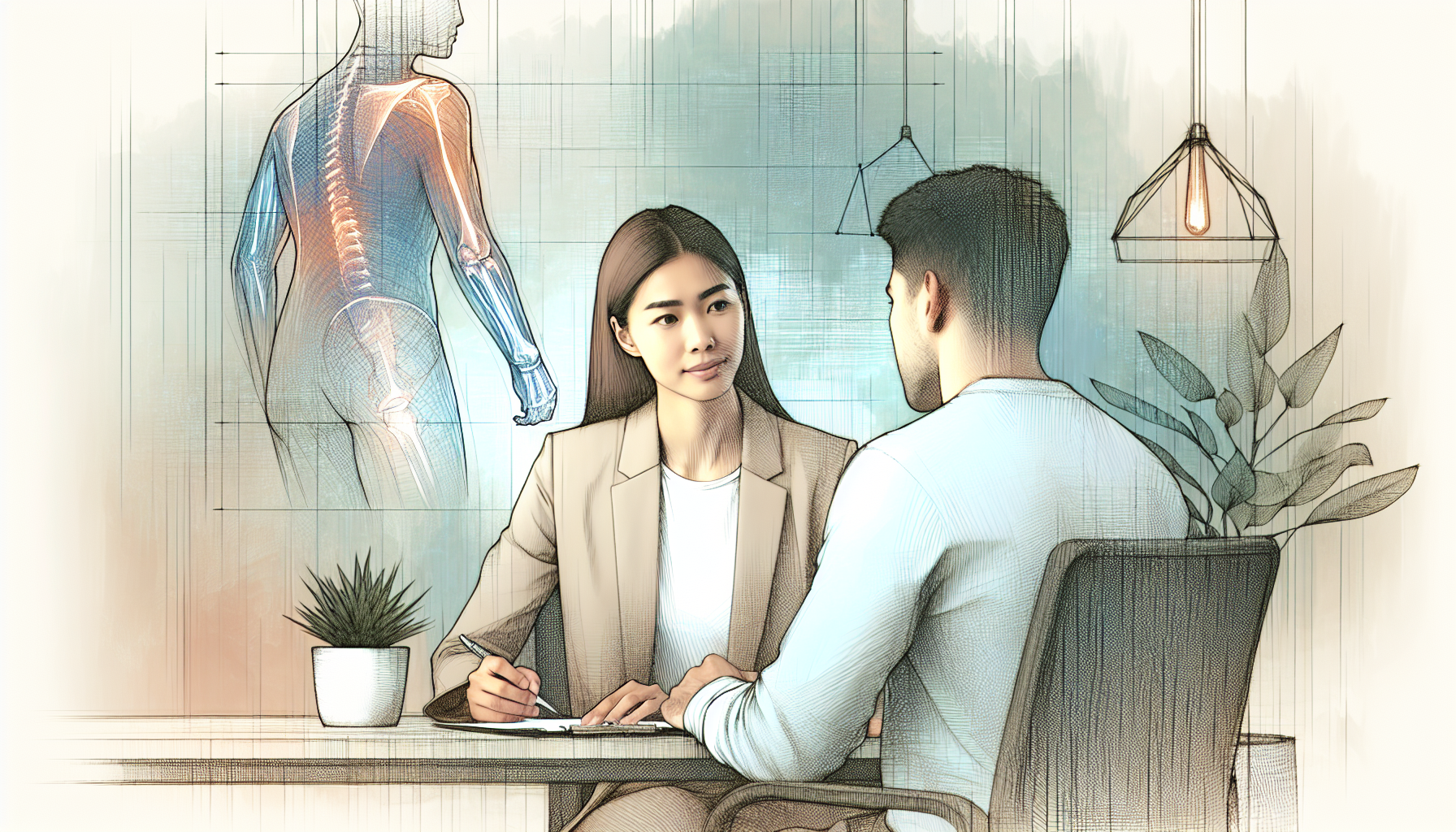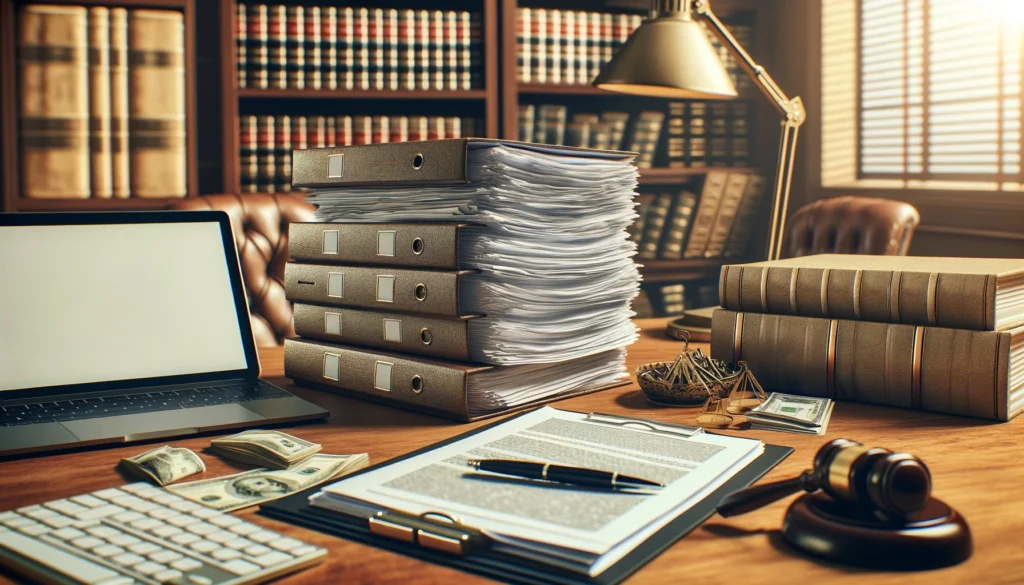
Unlocking the Potential: Introduction to LLMs in Personal Injury Law
The advent of Language Learning Models (LLMs) such as ChatGPT is revolutionizing various sectors, and the legal industry is no exception. Particularly within personal injury law, these models can significantly enhance the efficiency and effectiveness of legal practices. Language models can assist paralegals in performing a range of tasks from client communication to document drafting, streamlining many routine yet essential functions. This article is designed to elucidate the practical applications of LLMs for paralegals engaged in personal injury cases, outlining methods to leverage these technologies for better outcomes.
Prompt Engineering: Crafting Effective Queries
Understanding prompt engineering is fundamental for maximizing the benefits of LLMs. To extract the most precise and relevant information, one must design prompts that are contextually rich, specific, and clear.
- Context: Providing background information helps the model understand the scope of the query. For instance, specifying the jurisdiction or legal framework can yield more accurate responses.
- Specificity: Tailored queries generate more targeted answers. Rather than asking, “What are the damages for personal injury?” a prompt like, “What are the typical compensatory damages awarded for slip and fall injuries in California?” will provide more precise information.
- Clarity: Use clear and concise language to avoid ambiguity. Avoid multi-layered questions that could confuse the model.
Examples of effective prompts:
- “Summarize recent changes in California personal injury laws regarding slip and fall cases.”
- “List the statutory limitations for filing a personal injury claim related to auto accidents in New York State.”
By mastering these techniques, paralegals can efficiently navigate the complexities of personal injury law with the assistance of LLMs.
Also read:
Streamlining Case Research and Preparation
LLMs can be invaluable tools for conducting legal research and preparing cases. By using well-structured prompts, paralegals can quickly gather necessary information and synthesize case law.
Effective prompts for research:
- “Find precedents where the court awarded punitive damages in medical malpractice cases in Florida.”
- “Summarize the key findings from the most cited case law on employer liability in workplace injury cases.”
LLMs can also help in preparing key documents:
- “Draft a legal memorandum summarizing the main points of [specific case].”
- “Prepare an outline of arguments for a personal injury lawsuit involving a defective product.”
The efficiency gained through these targeted prompts not only speeds up the research process but also enhances the quality of the prepared documents. This sets the stage for a discussion on how LLMs can assist in another crucial area: document drafting.
Also read:
Document Drafting: Enhancing Precision and Consistency
Document drafting is a cornerstone of legal practice, and precision and uniformity are paramount. LLMs can aid in drafting various legal documents, ensuring they meet professional standards and client expectations.
- Complaints: “Draft a complaint for a slip and fall case that occurred in a retail store, focusing on negligence and premises liability.”
- Discovery Requests: “Generate an interrogatory focusing on the defendant’s safety measures at the time of the incident.”
- Settlement Letters: “Compose a settlement letter for a personal injury case involving a car accident, highlighting the defendant’s liability and the claimant’s medical expenses.”
By employing advanced prompts, paralegals can produce documents that are not only accurate but also consistent in tone and structure. This capability is particularly useful when handling multiple cases simultaneously, ensuring a uniform level of quality across all legal documents.
Also read:
Client Communication: Crafting Empathetic and Clear Responses
Effective communication with clients is crucial in personal injury cases. LLMs can assist in crafting responses that are both professional and empathetic, essential for maintaining client trust and satisfaction.
Prompts for client communication:
- “Draft a response to a client asking about the progress of their personal injury case, ensuring clarity and empathy.”
- “Compose an email explaining the next steps in the personal injury claims process, making it accessible for someone with no legal background.”
By using these prompts, paralegals can ensure that client communications are articulate and compassionate. This balance is vital for maintaining client relations and can be seamlessly integrated into daily workflow. Moving to the next layer of efficiency, let’s explore fact-checking and verification.
Also read:
Fact-Checking and Verification: Ensuring Information Integrity
Maintaining the integrity of information is non-negotiable in legal practice. LLMs can be instrumental in verifying facts and cross-referencing data.
Effective prompts for verification:
- “Verify the accuracy of the medical expenses listed in this personal injury claim form.”
- “Cross-reference the details of the incident report with the client’s deposition.”
By implementing such precise prompts, paralegals can ensure that the information is accurate and corroborated, thereby safeguarding the credibility of the legal work. This leads naturally into the next significant benefit: time management.
Also read:
Time Management: Automating Routine Tasks
One of the significant advantages of LLMs is their ability to automate routine tasks, freeing up time for more critical activities. This can be especially useful for paralegals involved in personal injury cases.
- “Schedule a deposition with the following parties: [list names and dates].”
- “Set a reminder for the filing deadline of [specific case].”
- “Send a follow-up email to the client with a summary of today’s meeting.”
Automating these repetitive tasks enhances overall productivity and allows paralegals to focus on more complex legal work. Once these efficiencies are realized, it becomes essential to continually refine these practices.
Also read:
Continuous Improvement: Learning and Refining Prompts
The dynamic nature of law demands continuous learning and adaptation. By consistently refining prompts based on feedback and evolving legal standards, paralegals can maximize the efficacy of LLMs.
- Regularly update prompts to include new legal developments.
- Seek feedback from colleagues to improve the quality and accuracy of prompts.
Continuous improvement helps maintain a high standard of work and ensures that the tools being used remain relevant and effective. Complementing this, ethical considerations are paramount in the responsible use of LLMs.
Also read:
Upholding Ethical Standards: Responsible Use of LLMs
Using LLMs responsibly is crucial for ensuring compliance with professional guidelines. Ethical considerations must always be at the forefront when integrating these technologies into legal practice.
- Ensure client confidentiality by avoiding the inclusion of sensitive information in prompts.
- Regularly audit the outputs for biases and inaccuracies.
Understanding these ethical considerations is fundamental for maintaining the integrity of legal practice while leveraging the benefits of LLMs. Concluding this discussion, we look at maximizing the overall potential of LLMs in legal work.
Closing Insights: Maximizing LLM Potential in Legal Work
The integration of LLMs offers a transformative opportunity for paralegals in personal injury law. By mastering prompt engineering, streamlining case research, and enhancing document drafting, these tools can significantly improve productivity and accuracy. Additionally, automating routine tasks and ensuring continuous improvement and ethical use further solidify their value. Embracing these technologies empowers paralegals to deliver superior legal support, ultimately enhancing the entire legal process.


